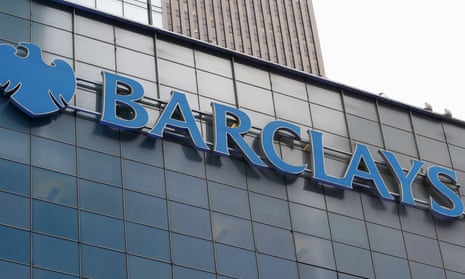Barclays paid a “lone wolf” star trader £170m in the five years following the financial crisis, a payout which dwarfed those of Bob Diamond, the bank’s former boss.
Jonathan Hoffman’s earnings included an $83m (£52m) payment to the trader who previously worked for Lehman Brothers, the US bank that collapsed in 2008 kicking off the global financial crisis.
Hoffman’s payout from Barclays has emerged in court papers relating to his battle at a New York court to secure $83m in unpaid bonuses from his days at Lehman, from the bank’s bankruptcy trustee.
Trustee James W Giddens has accused Hoffman of “double-dipping”, saying the payment from Barclays had already compensated him for the lost Lehmans bonuses.
In a deposition, Michael Keegan, a Barclays managing director, recalled thinking Hoffman was a “sneaky bastard” for seeking payment from the Lehman estate because he had assumed Barclays’ payout had been intended as compensation for the lost Lehman payouts. “I thought he was paid for it,” Keegan said. However, he conceded that Barclays chose to pay Hoffman and was under no obligation to do so.
Barclays wanted to secure the services of high-rolling Lehman traders including Hoffman after buying out the bank’s investment arm.
Hoffman has argued his payment was related to Barclays’ desire to secure his services against competing job offers from elsewhere. He said he was incredibly loyal to Lehman and did a good job for them. “If I am owed money by the estate, it’s not clear to me why I would not collect it,” he told the Wall Street Journal.
His lawyer Douglas Baumstein told the Guardian: “Hoffman was not paid for his Lehman bonus by Barclays. Rather, as the contemporaneous evidence shows, the payments made to Mr. Hoffman were retention payments, made to induce Mr. Hoffman to accept employment and to remain at Barclays for a period of years.” He said his client had earned Barclays more than $1.25bn.
The scale of the payouts offers a rare glimpse into the sky-high earnings of star traders who underpin the global banking system. Their deals are usually kept under wraps because companies are only obliged to reveal the pay and bonuses of their senior executive officers under the Project Merlin deal, in which banks promised the UK government to show restraint on pay. The deal was struck amid widespread anger at the pay of bankers in the wake of the financial crisis.
The son of a sweet manufacturer, Hoffman began working for Lehman in 1994 and became an expert in trading US government debt. By the time the bank collapsed he was working from a small Lehman office in Miami and living on the exclusive Palm Island, just off Miami Beach.
“I never had a losing quarter, never had a losing year,” he told the court. He said he was typically allocated between $200m and $400m of the Lehmans capital to trade with. Hoffman has said his style had “quite a bit of gut in it” and related to watching the way trades were flowing. “I have no view on interest rates, no view on the curve,” he told the Wall Street Journal. “I never speak to clients. I don’t know who is on the other side of the trade. I guess I am a lone wolf.”
It has emerged that Hoffman, who left Barclays in 2013 and now trades with his own money from his home in Philadelphia, received a base salary of $200,000 a year, but his contract with Barclays also entitled him to 12% of the first $25m of profits he made from trading and 14% on anything above. That meant that he earned $183m (£118m) from 2009 to 2013, according to his Baumstein.
Diamond, who was forced out of Barclays in 2012 in the wake of a scandal over rigging of the Libor rate which governs the rate at which banks lend to each other, took home about £120m over the five years from 2007 according to analysis from the Pensions and Investment Research Consultants.
Barclays was widely criticised for the high level of pay allotted to Diamond, known as Red after his initials. He was at the centre of a row over his £2.7m bonus for 2012 in the months before he quit. The bank was faced with a shareholder rebellion in protest against his proposed payout.
Barclays declined to comment. Hoffman was unavailable for comment.
